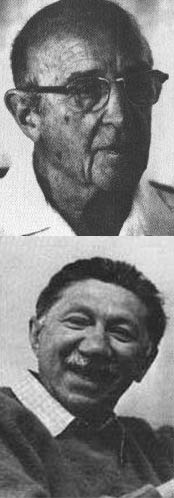 Faced with a choice
between psychoanalysis and behaviorism, many
psychologists in the 1950s and 1960s sensed a
void in psychology's conception of human nature.
Freud had drawn attention to the darker forces of
the unconscious, and Skinner was interested only
in the effects of reinforcement on observable
behavior. Humanistic psychology, led by American
Psychologists Carl Rogers and Abraham Mslow, was
born out of a desire to understand the conscious
mind, free will, human dignity, and the capacity
for self-reflection and growth. An alternative to
psychoanalysis and behaviorism, humanistic
psychology became known as “the third force.” Faced with a choice
between psychoanalysis and behaviorism, many
psychologists in the 1950s and 1960s sensed a
void in psychology's conception of human nature.
Freud had drawn attention to the darker forces of
the unconscious, and Skinner was interested only
in the effects of reinforcement on observable
behavior. Humanistic psychology, led by American
Psychologists Carl Rogers and Abraham Mslow, was
born out of a desire to understand the conscious
mind, free will, human dignity, and the capacity
for self-reflection and growth. An alternative to
psychoanalysis and behaviorism, humanistic
psychology became known as “the third force.”
Humanistic
therapies focus on the client's present rather
than past experiences, and on conscious feelings
rather than unconscious thoughts. Therapists try
to create a caring, supportive atmosphere and to
guide clients toward personal realizations and
insights. Clients are encouraged to take
responsibility for their lives, to accept
themselves, and to recognize their own potential
for growth and change.
The length of therapy
depends on the severity of the problem and on a
client's ability to change and try new behaviors.
Because humanistic therapies emphasize the
relationship between client and therapist and a
gradual development of increased responsibility
by the client, these therapies typically take a
year or two of weekly sessions.
Three of the most
influential forms of humanistic therapy are
existential therapy, person-centered therapy, and
Gestalt therapy.
"Psychotherapy,"
Microsoft® Encarta® Online Encyclopedia 2001
http://encarta.msn.com © 1997-2001 Microsoft
Corporation. All rights reserved.
.
|